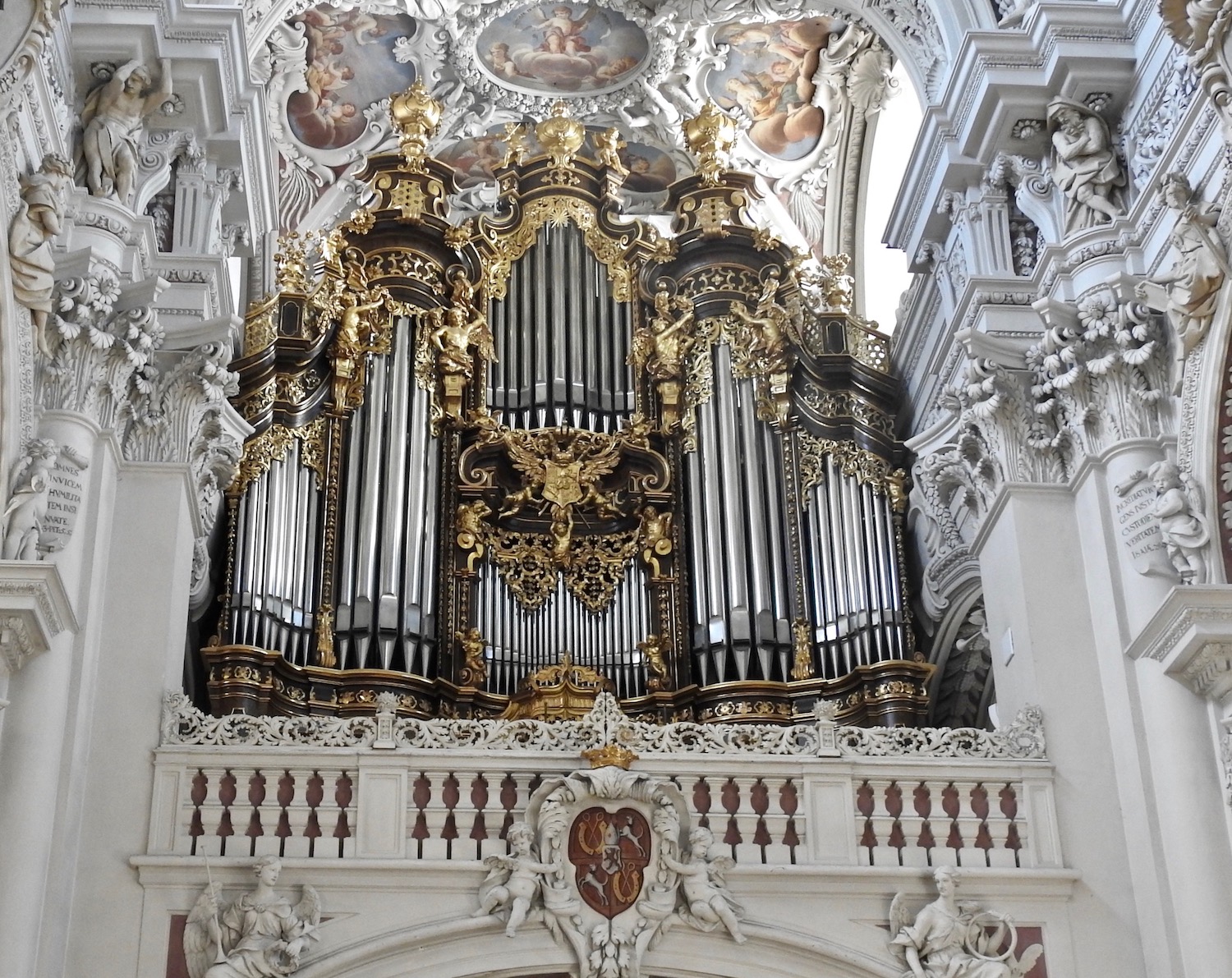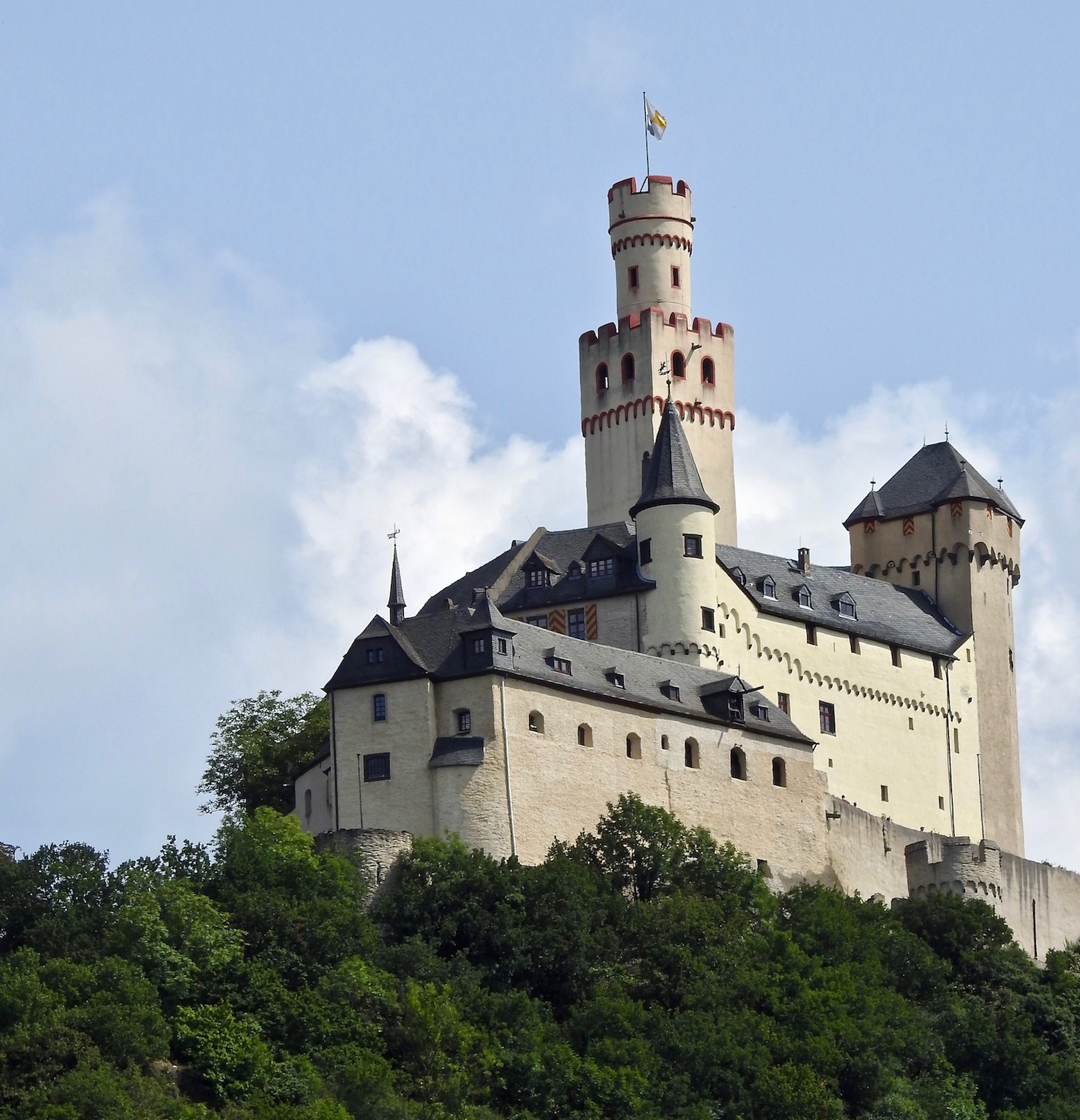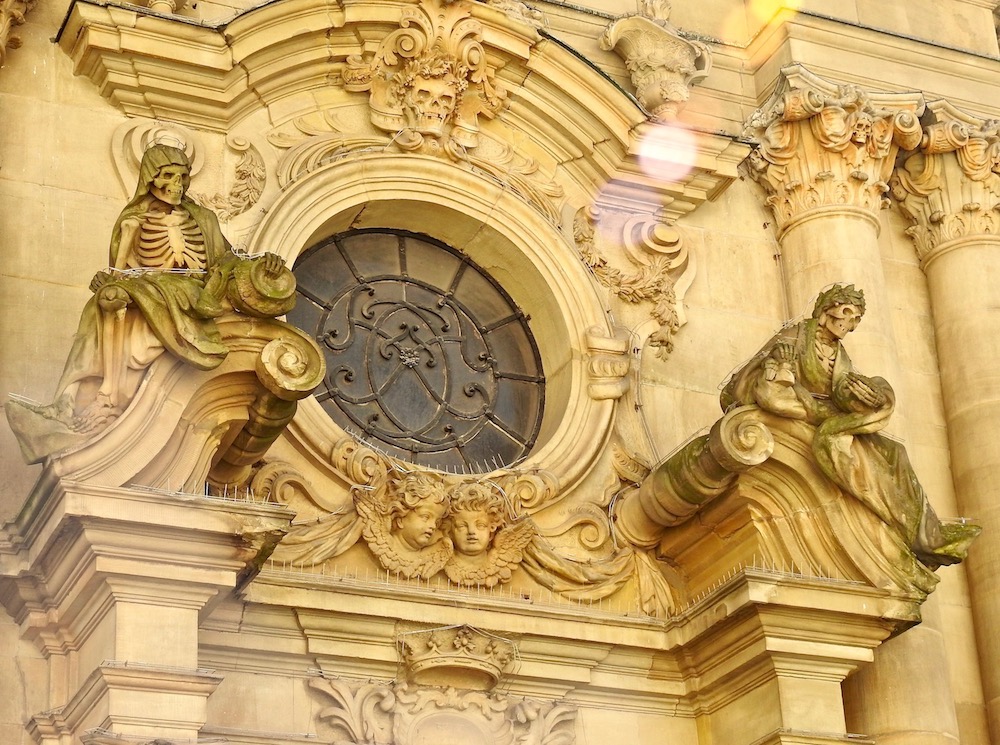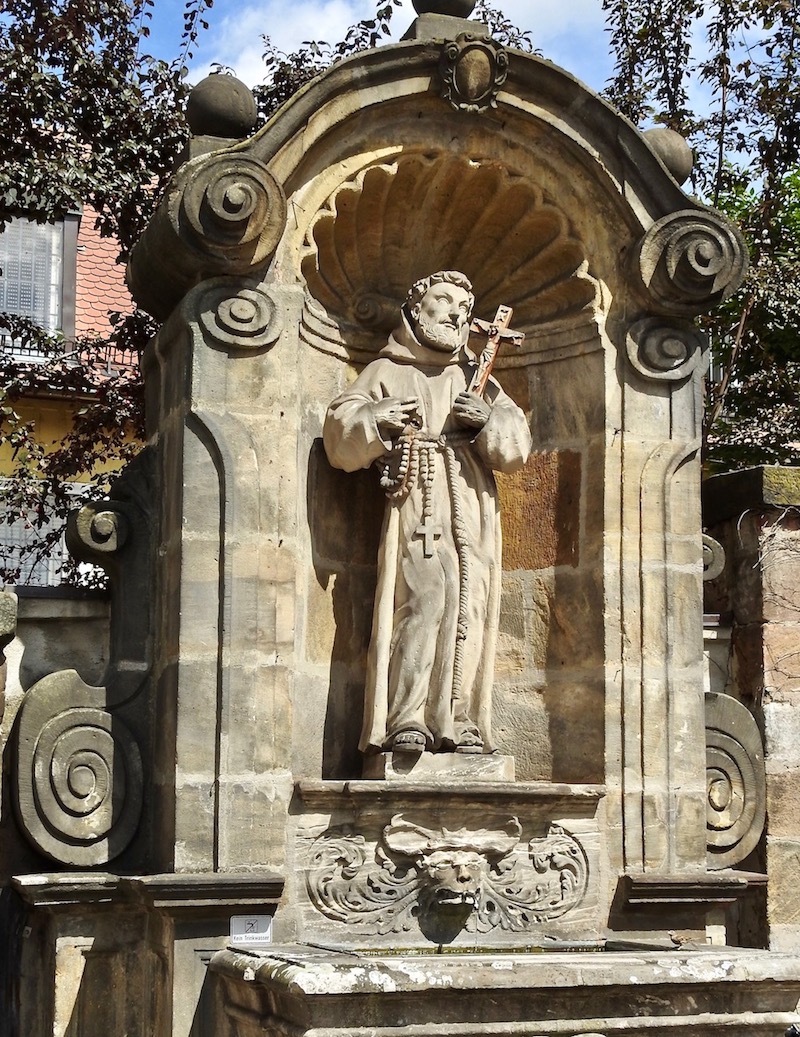
Passau, at the border with Austria, is known as the City of Three Rivers, the confluence of the Inn, Danube and Ilz Rivers.
Relatively a small town of 50,000 people (12,000 are students at the University of Passau), it is the economic and cultural center of southeastern Bavaria. Passau boasts approximately two million visitors/year. Tourist boats line the docks from one end of town to the other.
Our walk took us along cobble-stoned streets and sidewalks giving an Italian feel to the city.
Chris, our guide for the afternoon, met us just outside the boat to give us a brief overview and begin walking into the town.
In the Medieval period, Passau was the center of the salt trade. Salt was transported from the Alpine salt mines to Passau where it was processed. This profitable business lasted until 1707 when salt imports were forbidden and the city lost the trade and income.
Finally during the Renaissance, Passau became famous for high quality knife and sword blades. The blades were stamped with the Passau wolf. Warriors believed the wolf guarded them and made them invulnerable. This marketing idea spread to other cities, who stamped their knifes, thus reducing Passau’s market.
Fire of 1662 changed the city:
Baroque architecture was ushered into Passau with the fire of 1662 which burned down most of the town. Passau is a good example of the beauty that comes from a tragedy.
St. Stephan’s Cathedral
At the top of the hill sits baroque St. Stephan’s Cathedral. Partially destroyed by the 11662 fire, St. Stephan’s was rebuilt in the baroque style by Carlo Lurago. People say that St. Stephen’s is a Baroque church with a Gothic soul.
St. Stephen’s claim to fame is its organ, the largest cathedral organ in the world. It has 17,974 pipes, 233 stops and four carillons.
Concerts are given between April and October, Monday through Saturday. While I was visiting, mass had just ended, the doors opened and beautiful organ music could be heard outside the cathedral door.
Baroque interior of St. Stephen’s Cathedral:
Flood of 2013
Due to heavy rainfall and located at the convergence of the Danube and Inn Rivers, the water overflowed its banks, flooding the town. The positive side of the flood is the government provided monies for the rennovation of many of the buildings. New paint, improved roads…in short, the entire town received a face-lift.
Veste Oberhaus -fortress of the Bishop
Located on the crest of the mountain, overlooking the Danube and Ilz rivers, this Gothic and Baroque structure, was built in 1219 by the first prince-bishop of Passau. A “prince-bishop” holds both secular and spiritual power. He is responsible for defending the cities and people he is responsible for.
Friendly, clean, perfect size…you will fall in love with Passau.
About the Author:
In 2010, Annie Coburn created Fab Placez. In 2014, she changed the name of her website to FAB Senior Travel to better define her target audience, mature travelers. In order to provide diversity of locations and topics for her subscribers, she publishes travel articles from other writers, as well as her own.
Website: http:// www.fabseniortravel.com
















